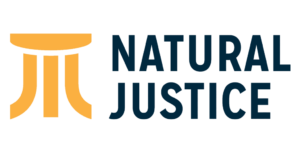The Power of Trust: Why Your NGO's Website Needs a Privacy Policy

The Power of Trust: Why Your NGO's Website Needs a Privacy Policy
A robust online presence is crucial for NGOs in the Global South, but with that comes responsibility. One often overlooked, yet vital, element of your website is a privacy policy. Think of it as a transparent agreement between your organisation and your website visitors, outlining how you handle their personal information.
Why is a Privacy Policy a Must-Have?
Firstly, it’s about trust. When people visit your website, especially if they’re considering donating, volunteering, or simply want to learn more, they want reassurance that their personal details (like names, email addresses, or even payment information) are safe. A clear privacy policy demonstrates your commitment to protecting their data, building essential credibility and encouraging engagement.
Secondly, it’s increasingly a legal requirement. While data protection laws vary across regions, many, like Europe’s GDPR or South Africa’s POPIA, have an international reach if you interact with their citizens. Not having a privacy policy, or having an inadequate one, can lead to serious consequences. Imagine a scenario where a donor from a country with strict data laws feels their information has been misused – this could result in hefty fines, reputational damage, and a significant blow to your fundraising efforts. Beyond legal penalties, a lack of transparency can lead to negative publicity, damaging your ability to attract support and achieve your mission.
Drafting Your Privacy Policy: Keeping it Simple
Don’t be intimidated by legal jargon. Your privacy policy should be easy to understand.
Here are the key points to cover:
• What information do you collect? Be specific. Is it just names and emails for newsletters, or do you collect more detailed information for donations?
• How do you collect it? Do you use website forms, cookies (tiny files that remember website visits), or other tools?
• Why do you collect it? Explain the purpose – is it for communications, processing donations, or understanding your audience better?
• How do you use it? Detail how you’ll process and utilise the collected data.
• Do you share it? If you use third-party services (like payment processors or analytics tools), mention them. Crucially, state that you won’t sell personal data.
• How do people manage their information? Explain how users can access, correct, or request the deletion of their data.
• How can people contact you? Provide clear contact details for privacy-related queries.
Remember, a privacy policy isn’t just a legal document; it’s a vital tool for building trust and ensuring the long-term success of your NGO’s digital outreach.
by Lethumusa Kulube
13 August 2025




























